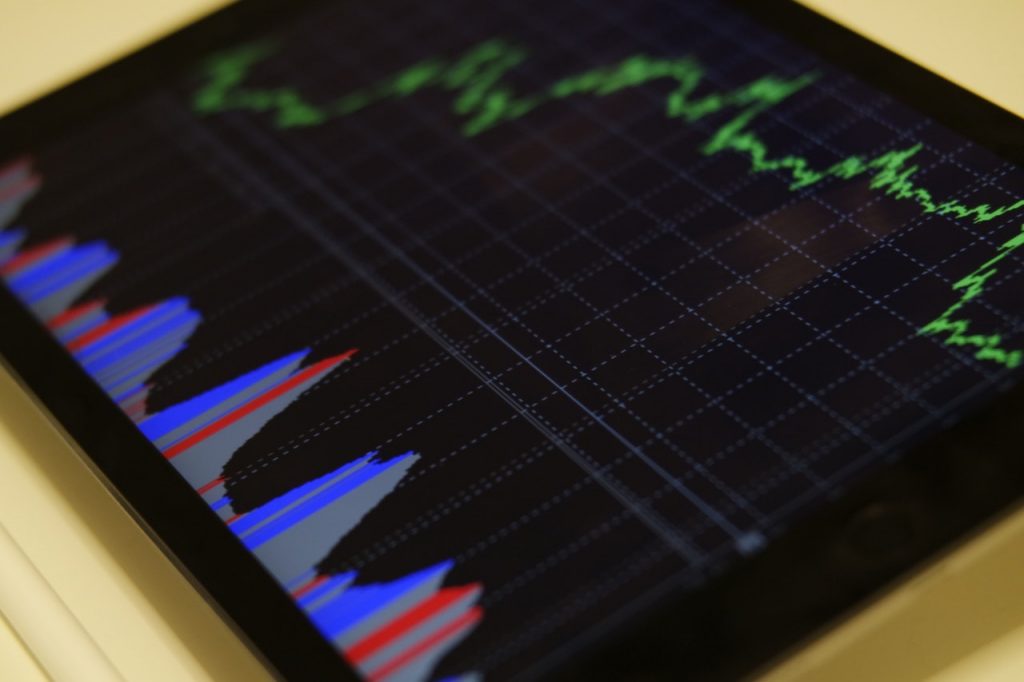Day trading is a trading style where no positions are left open over night. A day trader will typically learn how to exploit small price changes rather than relying on major changes in price.
Using leverage is fairly common among day traders, since opening and closing large positions will yield a significant profit even from a small price change. Of course, large positions can also result in a significant loss, and if you are using leverage, you can lose more money than you have in your account and end up in debt. When you are using leverage you are risking money that you borrowed from your broker. We do not recommend leveraged trading for inexperienced day traders, and even experienced traders should take care never to risk more money than they can afford to lose.
How much money do I need to start day trading?
Before you start day trading, you need to save up a bank roll that is large in relation to the size of the trades you plan on doing. With proper risk management, it will allow you to endure through times of bad luck and poor decisions.
But how large should this bankroll be? It depends on how large each trade will be. Today, it is possible to make miniscule trades through retail trading platforms online, and pay only very small broker fees. Because of this, you no longer need an enormous bankroll to start day trading – you just need to keep each trade small as you gradually build your bankroll over time.
The size of your bankroll will determine the limit for how much money you should put at risk at any given moment. Experienced traders tend to risk only a fraction of their total bankroll at any given time.
Broker fees
Day traders tend to carry out a multitude of trades within a short time span. It is very important to pick a broker and account type that is suitable for day trading, otherwise your profits will be eaten by the broker fees.
Taxes
It is important to learn about applicable tax law before you start day trading, otherwise you might encounter several unpleasant surprises. Exactly how day trading profits are calculated and taxed, and what type of losses and costs you will be allowed to deduct, vary depending on jurisdiction.
Order execution
For a day trader, quick order execution is imperative. Even a small dely can turn a possible profit into a major loss.
Day traders take several steps to ensure rapid order execution, and some of these steps are things that you can do even if you are a very small-scale hobby day trader:
- Seek out markets caracterized by high liquidity and high volume. When you spot the right instant to close a position, you want the whole thing to be sold in the blink of an eye.
- Only user brokers and platforms known for rapid order execution.
- Make sure you know the ins and outs of the trading platform. Leave platforms that slow you down with their clunkyness, bugs, glitches, etctera.
Make a plan and stick to it
Many novice day traders make excellent plans for profit goals and risk management, and then promptly lose their whole bank roll because they fail to stick to those plans.
- It is very easy to convince ourselves to keep a position open ”just a little longer” after it has reached our planned profit level.
- It is very easy to convince ourselves to put most of our bankroll on the line when we feel that a particular trade ”is a sure thing”.
- After breaking our own rules a few times with a positive result, we convince ourselves that we have developed a superior ”gut feeling” that makes it possible for us to know when to stick to the plan and when to break it.
- When we break our own rules and make a profit, we are skilled traders with an uncanny ability to read the market. When we break our own rules and incur a loss, it was a horrible strike of bad luck that no one could have predicted, or maybe even the result of illegal market manipulation or a dishonest broker/platform.

